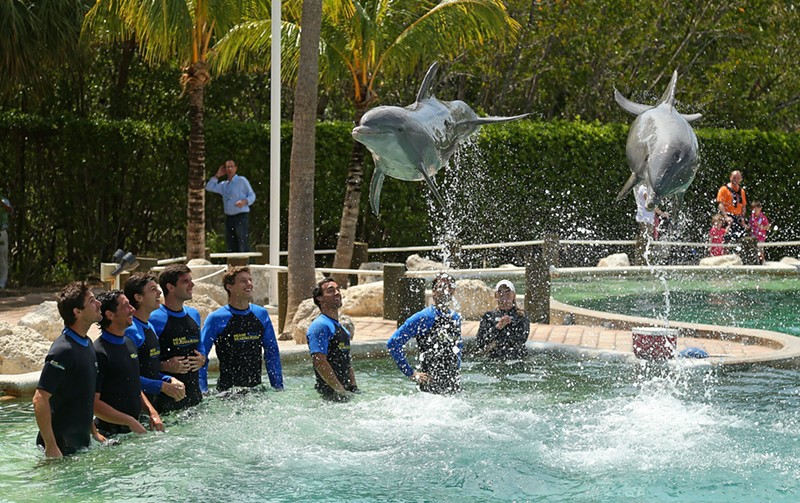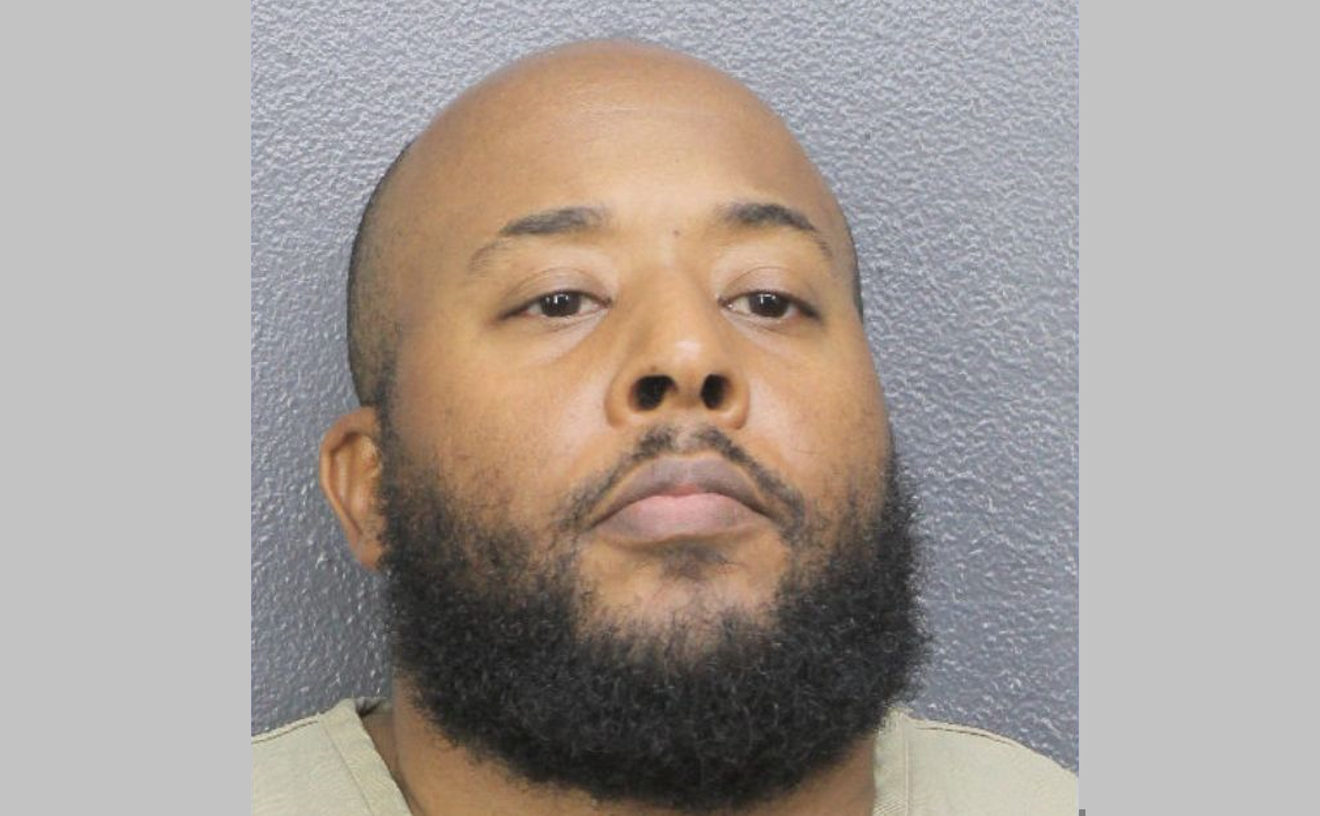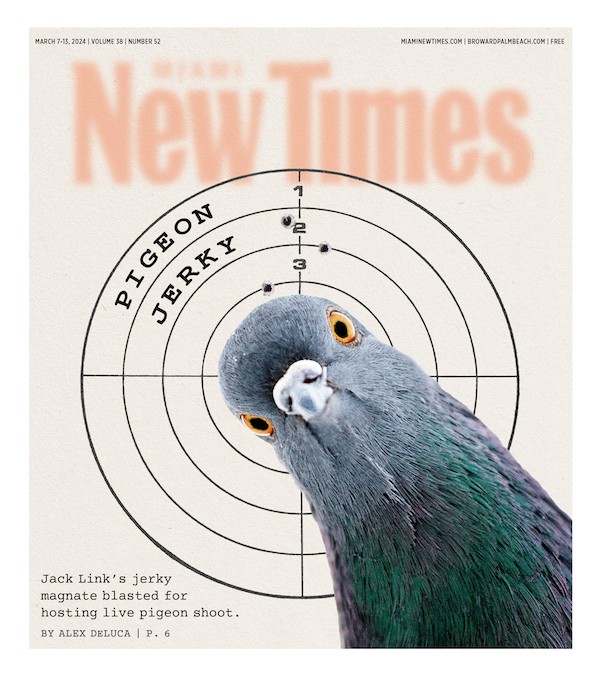Federal inspectors have once again issued a report citing Miami Seaquarium for allegedly deficient animal care and poor tank conditions.
When U.S. Department of Agriculture (USDA) inspectors visited Miami Seaquarium in July, they found the marine park was severely understaffed with only one licensed veterinarian, who was tasked with taking care of hundreds of animals at the park, according to the newly released inspection report.
The report cited the marine park for lacking adequate medical equipment and allowing a dolphin to remain in a dilapidated pool where it had been eating plastic and chunks of concrete.
Over the summer, the sole vet had "zero full-time support staff" after three veterinary technicians resigned, according to the USDA. Without adequate staffing, only sick and urgent cases could be addressed, leaving parkwide routine veterinary testing to go on pause, the report states.
"The facility failed to maintain a sufficient number of adequately trained employees. The termination of employment of an associate veterinarian on March 27, 2023, resulted in a single veterinarian to care for the 46 marine mammals and hundreds of birds, fish, sharks and rays housed at the facility," reads the report (attached at the bottom of this story).
The report states that the veterinarian, who is not named in the document, was not only dealing with understaffing, but her authority was being undermined by a new corporate animal-training staffer.
"It was reported by several employees that a newly appointed corporate trainer, in charge of dolphin training, was instructing other employees not to contact the [the veterinarian] and undermining her authority, which created a very stressful environment. A chain-of-command chart was displayed in the trainer’s office.... This chart showed him at the top of the chain and did not include the [veterinarian]," the inspectors wrote.
Miami Seaquarium has not responded to New Times' request for comment. The park was taken over by the Dolphin Company, an international marine park operator, in 2022.
In addition to the staffing issues, the new report says that poor tank conditions persisted at the facility this year, leading a dolphin to ingest foreign material.
In January, Elelo, a five-year-old Pacific white-sided dolphin housed in Pompano Pool 3, had a plastic zip tie, a piece of broken plastic, and a large piece of cement removed from his digestive tract. The report says the zip ties likely came from the fencing on the sides of the pool, the plastic was likely from a target pole, and the cement was from the floor of the pool where there was a layer of broken, flaking cement.
Months later, Elelo vomited sand and glass filtration media, the agency says.
Inspectors noted in the July review that the dolphin had not been transferred out of the Seaquarium despite the veterinarian's efforts to get her removed from the ill-maintained enclosure over concerns she would ingest more foreign bodies.
The inspectors added that the park did not have scales that can be used in all marine mammal enclosures, and as a result, three adult manatees who were living at the facility had not been weighed in more than five years. The park also lacked a modern gastroscope, an instrument used to inspect animals' digestive system, according to the report.
"Properly functioning equipment is necessary for diagnosing, treating, and maintaining the health of the animal," the report reads. "Accurate weights are essential for dosing medications and providing adequate routine care."
The report is the most recent in a series of USDA evaluations since 2021 that have found Miami Seaquarium facilities in disrepair and animal welfare issues at the park.
A 2021 USDA inspection found that the park, which was owned by Palace Entertainment at the time, was not properly monitoring the chlorine levels and water quality, that tanks were falling apart, and that Palace had cast aside a lead veterinarian's concerns about underfeeding marine mammals, including the Seaquarium's main attraction, Lolita the orca.
In response to the backlash over those findings, the Seaquarium said it stood by the quality of its animal care and had a track record of successful inspections.
"Our veterinarians and animal care specialists are fully dedicated to delivering the best care to all of our animals," the Seaquarium said.
In July 2022, a USDA inspection found nine dolphins were being underfed by trainers as a means to control their behavior for their public performances. Their diets were cut by as much as 60 percent, causing them to act out and behave aggressively, the USDA said.
Miami-Dade County officials' internal correspondence shows that the USDA's past inspection findings put Dolphin Company's lease with the county in jeopardy. The county's parks department, Miami-Dade County Parks, Recreation and Open Spaces, sent a noncompliance notice to the company last year after the USDA's July 2022 inspection results came to light.
The Seaquarium's then-general manager Patrick Pearson said that the dolphins' diet cuts had legitimate reasons.
“Our team came in and evaluated all the animals on the park property, and they did determine that some of them were overweight and adjusted diets based on their being overweight,” Pearson told Local 10.
The Seaquarium has been in the global spotlight in recent months over its handling of Lolita, who was confined in a cramped tank at the facility from 1970 until her death in August. The whale, also known as Tokiate or Toki, died at the estimated age of 57 after an August 18 medical procedure from which she never recovered. A necropsy report attributed her death to a chronic infection that had afflicted her for at least two years.
The most recent USDA report did not address Lolita's tank conditions, as the whale was no longer displayed in a public animal exhibition and therefore not under the USDA's regulatory purview. The Seaquarium cut off its show featuring Lolita after Miami-Dade County issued a 2021 unsafe-structure notice against the whale stadium and Lolita fell ill from the infection.
As they had in previous inspections, the USDA inspectors noted in the new report that animals at the Seaquarium were subject to too much direct sunlight, which is harmful to their skin and eyes. An adult male manatee at Pompano Pool 1 was left without an overhead tarp for 10 days in March and for an unspecified number of days in April.
Animals
Federal Inspectors Cite Miami Seaquarium for Severe Understaffing, Animal Safety Issues
A single veterinarian was assigned to care for nearly 50 marine mammals, according to the USDA.

Dolphins perform for tennis stars at the Seaquarium prior to the 2014 Sony Open.
Photo by Mike Ehrmann/Getty Images
[
{
"name": "Editor Picks",
"component": "17482312",
"insertPoint": "4",
"requiredCountToDisplay": "1"
},{
"name": "Inline Links",
"component": "18711090",
"insertPoint": "8th",
"startingPoint": 8,
"requiredCountToDisplay": "7",
"maxInsertions": 25
},{
"name": "Air - MediumRectangle - Combo - Inline Content",
"component": "17482310",
"insertPoint": "8th",
"startingPoint": 8,
"requiredCountToDisplay": "7",
"maxInsertions": 25
},{
"name": "Inline Links",
"component": "18711090",
"insertPoint": "8th",
"startingPoint": 12,
"requiredCountToDisplay": "11",
"maxInsertions": 25
},{
"name": "Air - Leaderboard Tower - Combo - Inline Content",
"component": "17482313",
"insertPoint": "8th",
"startingPoint": 12,
"requiredCountToDisplay": "11",
"maxInsertions": 25
}
]










